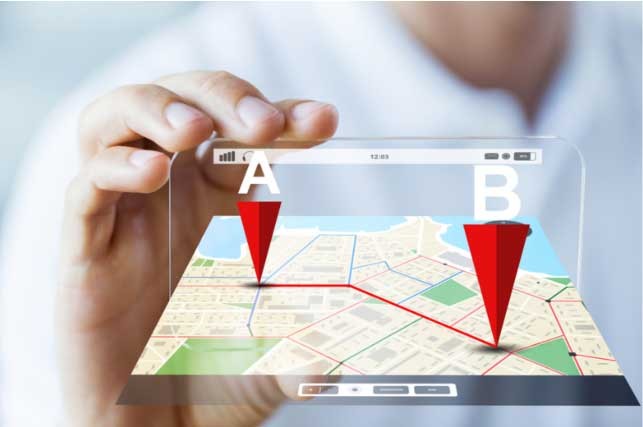Hi there, its Agness and Cez, back again to share some more useful travel tips. As friends who have been travelling together for a long time, we focus on turning every journey into an adventure – a safe adventure. That’s what makes travelling fun and exciting, right?
However, as fun, and exciting as it is, we always insist on travelling smart and safe. We know and respect how stressful it can be for loved ones at home trying to keep tabs on our whereabouts especially if travelling to unfamiliar places. We are here to help you to become the best traveller you can be.
By using GPS tracking on your smartphone, your family and friends can track you wherever you are in real-time and with ease, keeping them safe from constant worry. A problem, however, is that GPS tracking services can consume a lot of energy. With our tips below, we hope to ensure that your battery life is extended and that you always reach your destination safely and with some juice to spare.
1. Adjust screen brightness/use less screen
Your phone screen is one of the components that uses the most energy and learning how to control its use will reduce your energy consumption considerably. The more you check your screen for updates, watch videos, or chat, the quicker your battery power will drain. So, while travelling, you simply must limit the amount of time you actively use your phone. A no brainer really.
In addition to using your phone less, some other hacks to reduce battery drainage include: changing your screen lock setting to less than a minute, using dark coloured wallpapers and adjusting screen brightness. Smartphones with AMOLED display use more energy to illuminate light colours and less power for darker colours. Ensure you turn on your phone’s auto-brightness mode to adjust screen brightness according to your environment.
2. Turn off push notifications
Push notifications are app alerts that notify you of any development in real-time. These notifications require regular communication with servers. Each notification requires the phone to wake up and turns on your screen to allow you the chance to respond. If an app; Facebook, WhatsApp, Twitter, or email is regularly sending notifications, it will eventually drain your battery.

As much as you’d like to know how many likes your picture got on Instagram or Facebook in real time, this will affect your battery life. Disable push notifications, and manually refresh your chosen app every 30 minutes or so to check your mail or social media account. Also, turn off the mild vibrations that occur when typing, it all adds up.
3. Update apps/download content before leaving
Updating apps or an operating system and downloading/streaming content consumes a lot of power. If you want to watch videos or listen to music on your phone, always download before travelling or when close to a power source and avoid unnecessary power consumption.

For iPhone users, it’s great to use Bluetooth instead of AirPlay when listening to music. AirPlay consumes more power than Bluetooth. If possible use earphones, another choice that will help you conserve more power.

4. Check your phone battery usage data
Battery usage data on smartphones will show the apps consuming the most power. You can also check which apps consume the most power when actively using them and those consuming power in the background. You will find that the apps consuming the most battery power are those with the most screen time. This is logical and unless you change your app choice and usage there isn’t much you can do. You can however change how you use the apps consuming power in the background.
Email or location apps may continuously sync with servers checking for new alerts, investigate. Choose your essential travel apps wisely and restrict background data for the rest. Delete screen widgets such as stock apps or weather apps that offer unnecessary and turn on power saver mode, in some phones this restricts the use of background data.
5. Customize which apps to use location
People believe that GPS uses a lot of battery power, but when well-managed, even GPS services will be moderate in their power consumption. For example, when possible, reduce screen time while using GPS to find a location.

Be sure to investigate fully and turn off other apps in your arsenal that are using location-services features and focus on saving essential apps, for instance, the one your family is tracking you on.
Other tips
- Don’t use flash when taking pictures;
- Turn off cellular data or Wi-Fi in areas where the reception is not stable as the phone uses a lot of battery power searching for a signal;
- Avoid exposing your phone to extreme temperatures, hot or cold, as they affect your battery life;
- Get a battery pack, either portable one or a phone cover one that can charge your phone on the go.

We can all agree that using GPS tracking technology is both safe and smart. It is a travel essential. Utilising our tips will enable you to always have your GPS tracking technology turned. A step that will keep you safe and give your loved ones’ peace of mind. Our tips will ensure that you can use your phone for safety and fun - until the next charge.
If you have any tips on how to minimize battery drainage, please share.





Share this article